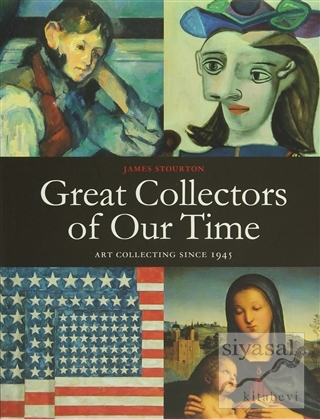
In the early 20th century collecting art was primarily a way for individuals to decorate their homes, but by midcentury many artistic works were being acquired by collectors eager to establish museums and galleries of their own. Sotheby's chairman James Stourton explains that it was an era of art dynasties, including the Guggenheims, Rockefellers, and the Gettys, all of whom felt that their holdings should be on public view. As seen in this book's dozens of color photographs, the collectors' tastes encompassed Picasso, Ingres, Goya, Brueghel, Gauguin, Dürer, Rauschenberg, and Koons, as well as ancient sculptures, illuminated manuscripts, and contemporary installation art. Stourton's overview also devotes individual chapters to collections in Britain, Switzerland, Germany, and Japan, and discusses how America supplanted Europe as the hub of the art world.
In the early 20th century collecting art was primarily a way for individuals to decorate their homes, but by midcentury many artistic works were being acquired by collectors eager to establish museums and galleries of their own. Sotheby's chairman James Stourton explains that it was an era of art dynasties, including the Guggenheims, Rockefellers, and the Gettys, all of whom felt that their holdings should be on public view. As seen in this book's dozens of color photographs, the collectors' tastes encompassed Picasso, Ingres, Goya, Brueghel, Gauguin, Dürer, Rauschenberg, and Koons, as well as ancient sculptures, illuminated manuscripts, and contemporary installation art. Stourton's overview also devotes individual chapters to collections in Britain, Switzerland, Germany, and Japan, and discusses how America supplanted Europe as the hub of the art world.














